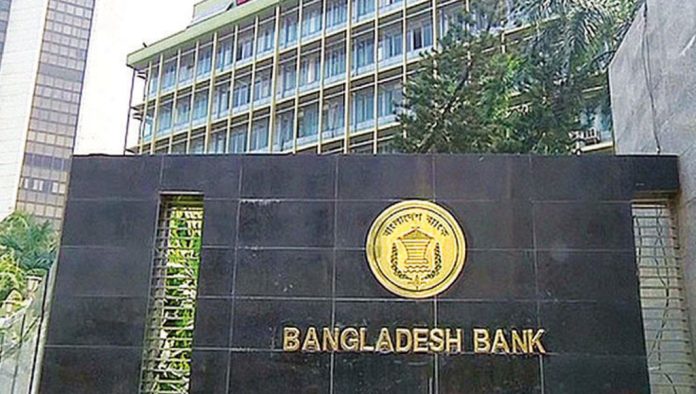Govt to face pressure to maintain payment obligation: economists
The country’s overall external debts remained over $100 billion at the end of the first quarter of the 2024-25 financial year despite the credit growth rate falling to almost one per cent, and the concerns over payment obligation loom large.
The overall external debt amount went up to $104.36 billion in the July-September period of the current financial year, according to the Bangladesh Bank’s latest ‘Debtor classification of external debt of Bangladesh’ released on Monday.
In the April-June period of FY24, the country’s overall external debts stood at $103.40 billion with a 4.5-per cent increase, showed the BB update.
Economists attributed the slow growth in the external debts in the period to the ouster of the Awami League regime amid the July-August mass uprising.
‘It was an extraordinary situation,’ Institute for Inclusive Finance and Development executive director MK Mujeri said referring to the uprising that had forced deposed prime minister Sheikh Hasina to escape to India.
The country’s multilateral and bilateral partners had kept release of loans almost suspended in the period, he observed.
Besides, the interim government that took office in August 8, 2024 is following a cautious approach to taking foreign loans, most of which utilised for implementing annual development projects and meeting the budget deficit.
The composition of the country’s overall current external debts, according to the BB update, is that the government debt increased to $84.4 billion in the first quarter of FY15 from $82.82 billion while the private sector debt dropped to $19.91 billion from $20.57 billion.
Despite the slowdown in the growth of the overall external debts in the first quarter of FY25, the interim government is under pressure to meet the debt obligation that had reached $100.25 billion in December 2023, from only $23.5 billion in 2009 because of the credit spree by the AL regime for implementing mega projects, said economists.
The white paper on state of the Bangladesh economy submitted recently to the interim government the country’s external debt carrying capacity had weakened due to growing exposure to foreign currency-denominated non-concessional loans taken for the megaprojects.
Padma Multipurpose Bridge Project, Multi Lane Road Tunnel under the River Karnaphuli, Dhaka Mass Rapid Transit Development Project, Padma Bridge Rail Link Project, Dohazari to Cox’s Bazar Railway Track, Payra Deep Sea Port, Matarbari Ultra Super Critical Coal Fired Power Project are seven such projects costing about Tk 1,95,116.87 crore.
Two other projects are Maitree Super Thermal Power Project that cost Tk 16,000 crore and Rooppur Nuclear Power Plant being implemented at a cost of Tk 1,13,092.91 crore.
The megaprojects implemented mostly with foreign loans by the AL regime had left the country with concerns over the debt trap amid the questionable expected returns, said the white paper.
Some signs are already visible, said former World Bank Dhaka office chief economist Zahid Hussain referring to interest payments against external loans as per a Finance Division update in the past week.
The payment obligation for the domestic borrowing grew by 17 per cent in FY24 against a whopping 60 per cent rise in the external interest payment in the same period.
Disclosing the unwarranted situation, the Finance Division report admitted that the past government had started paying interest on some major foreign loans even without disclosing those.
Causing concerns for the government, the interest payment will rise further in the coming years amid a dollar shortage the country has been facing since 2022.
The overall situation is also forcing the government to rely heavily on foreign loans amid low revenue generation, said Mueri.
Centre for Policy Dialogue distinguished fellow Mustafizur Rahman said the country’s economy was facing a vicious cycle because of plundering of resources by oligarchs of the AL regime.
He said more cautious steps were expected from the interim government to avoid debt distress in future.









































